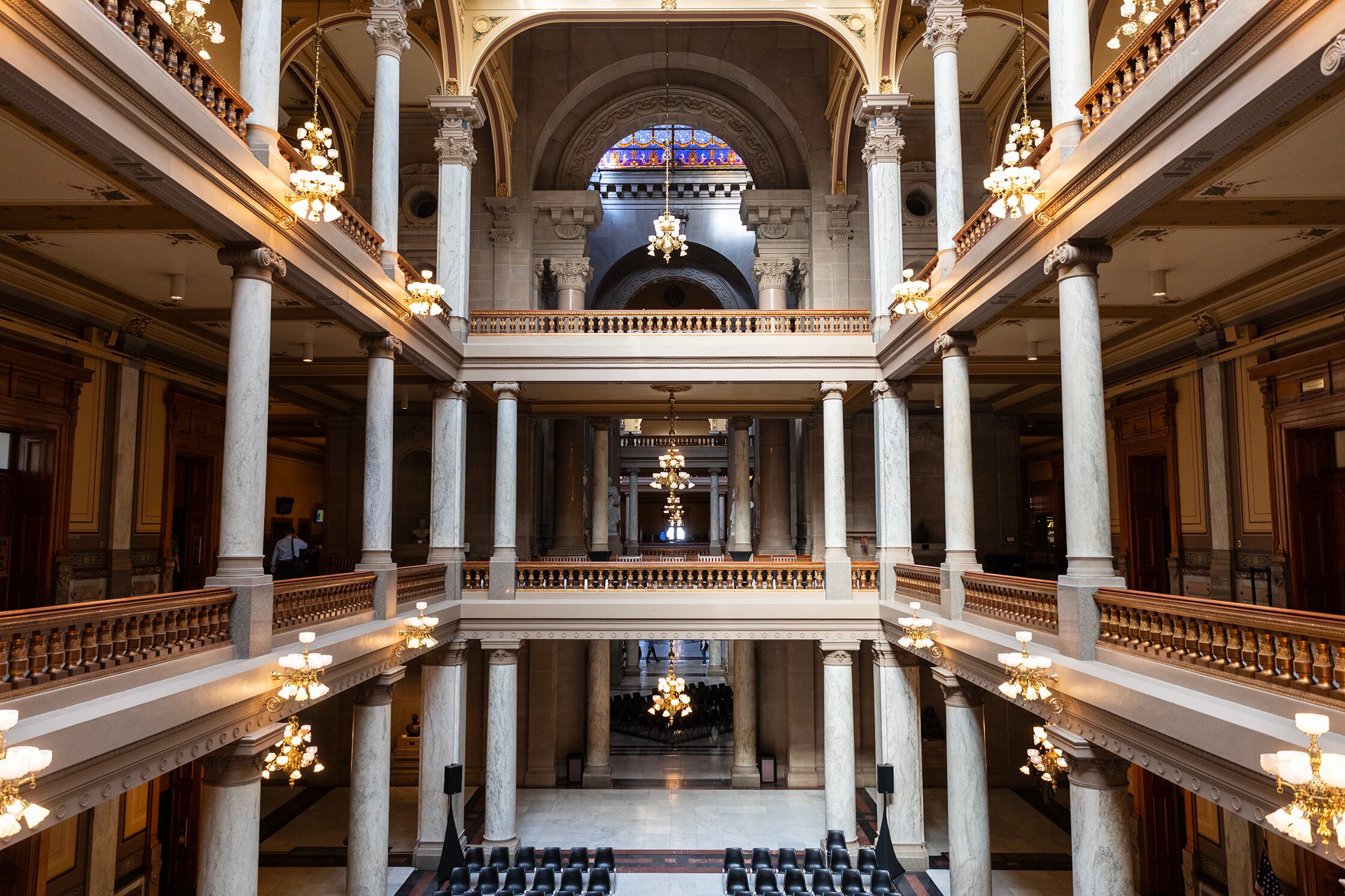Sign up for Chalkbeat Indiana’s free daily newsletter to keep up with Indianapolis Public Schools, Marion County’s township districts, and statewide education news.
Update: The Indiana legislative session ended on March 8, 2024. Here are the education bills that did and didn’t pass.
Too many students in Indiana are missing school. And Indiana lawmakers have struggled to find a fix for the issue of absenteeism.
Finding a balance between punitive and proactive measures to fix absenteeism where it’s highest — in the earliest grades and in high school — has evaded Indiana lawmakers trying to grapple with the state’s absenteeism rates, which peaked during COVID and still remain high in Indiana and nationwide.
With Senate Bill 282, which members of the Senate Committee on Education and Career Development approved unanimously on Wednesday, they seek to begin to address the bell curve of absenteeism.
“There are younger students that have truancy issues, and there are older students. Trying to wrap your arms around that 900-pound gorilla I found to be absolutely impossible,” said said Sen. Stacey Donato, a Republican from Logansport and the bill’s author.
GOP lawmakers flagged absenteeism as a priority for their agenda this year. But they had yet to bring a bill forward before Wednesday, the last opportunity for bills to be heard in the education committee before midway deadlines.
The proposals targeting each side of the bell curve are different.
First, it prescribes steps that schools must take to contact the parents of truant elementary students and provide them information and wraparound services to help improve attendance.
The bill also urges the bipartisan Legislative Council to further study absenteeism this summer — including ways to promote school attendance and age-appropriate consequences for habitually truant students — which will help address absenteeism among older students, Donato said.
“We’re going to do our absolute best to get those children the services that they need, the parents the services that they need, and work with those children to get them to school so that they can learn to read,” Donato said.
Donato ended up heavily amending her original bill, which in its initial form prescribed both punitive and preventative measures that schools could use to curb habitual truancy.
It would have referred more students to juvenile courts, which could have assessed fines of up to $1,000 to parents of truant students and assigned community service to the students themselves.
Absenteeism is ‘far beyond’ scope of one bill
Under Donato’s revised bill, schools would be required to notify parents of elementary students in writing of their student’s absences, their responsibility to ensure their student’s attendance, and the possible consequences for failing to do so, like juvenile court intervention. Schools would need to hold attendance conferences with parents no more than five days after the student’s fifth unexcused absence in a 10-week period.
The revised bill also mandates that schools create behavior plans to improve students’ attendance, and offer counseling to address any underlying issues keeping them from attending school.
Donato’s amended bill received support from a wide array of groups, including the Indiana Teachers Association, the Indiana School Social Workers Association, and the Indiana School Boards Association. They said they would have opposed the bill as originally written.
“This is an issue that goes far beyond what any one bill could possibly fix,” said Joel Hand, representing the School Social Workers Association. “But this is a step in the right direction.”
You can track SB 282 on the General Assembly’s website.
Aleksandra Appleton covers Indiana education policy and writes about K-12 schools across the state. Contact her at aappleton@chalkbeat.org.






